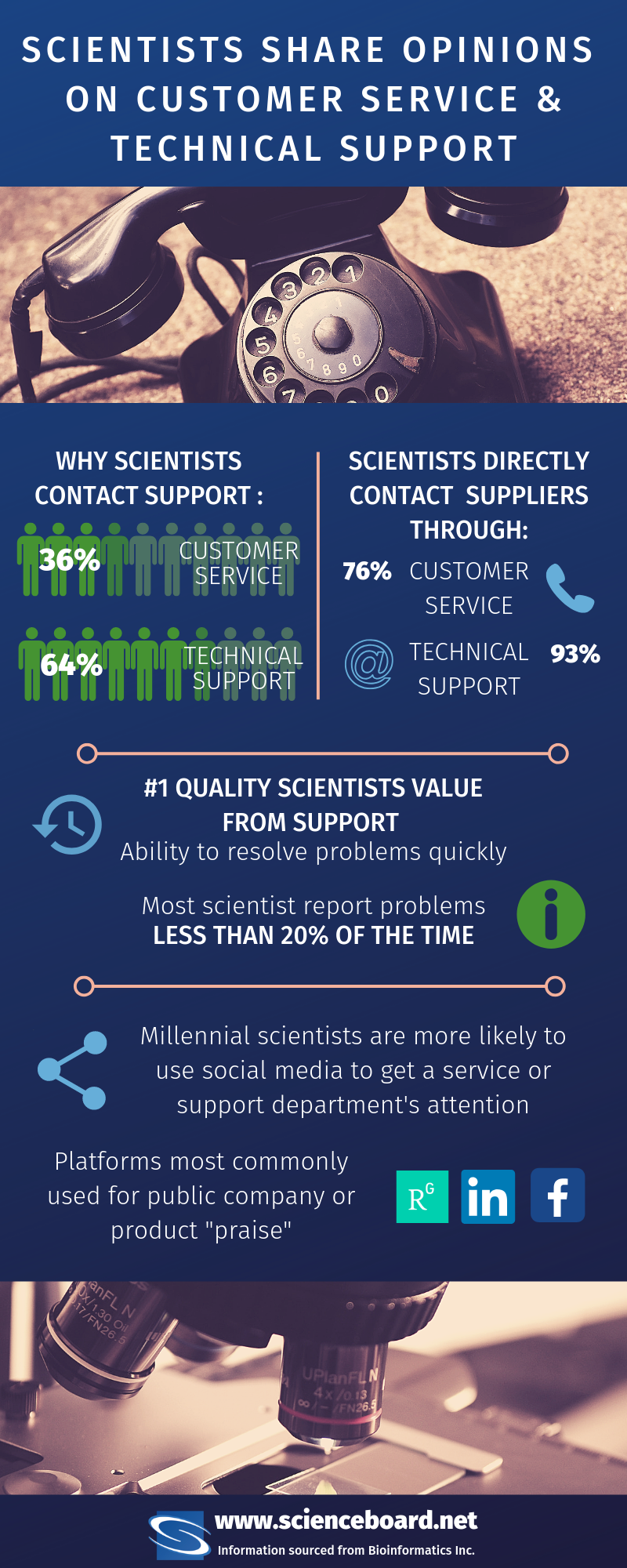June 20, 2019 -- Over 700 members of the SAB recently took part in a survey regarding their experiences with customer service and technical support through life science suppliers. We thought you’d like to know a little more about some of the results from this project, to understand how some of the research we conduct with your help ends up!
Within the past 6 months, scientists contacted their suppliers for technical support related issues more often than customer service-related issues.

Regardless of which department or what kind of issue scientists report that they are having, scientists say that they are far from reporting every issue that they have to a supplier. Most scientists say that they report less than a fifth of customer service and technical support issues are reported!
Since the rate of reporting problems to a supplier is relatively low, issues that get reported are likely to be critical or difficult to resolve without the help of a supplier. Since scientists are busy, the expectations for customer support and technical support departments revolve around seed of service and efficiency. Experiments are waiting, and instrument downtime needs to be avoided!
Similarly, expectations of scientists for the folks they interact with when getting a problem solved are related to efficiency and speed of service. Without competent personnel who understand your problem, and do so quickly, you would expect to spend much longer on the phone or over email resolving even minor issues!
Currently, most scientists don’t use social media to get a supplier’s attention when they need help with customer service or technical support issues. Most customer service and technical support is done through phone or email.
However, when scientists do use social media to get a supplier’s attention for issues they are having in their lab, ResearchGate and LinkedIn are most commonly used. These are the social media platforms that are more likely to be used as part of a scientists’ professional social media persona.
When it comes to praising or complaining about a supplier or a product on social media, most scientists report that they haven’t done this within the last 6 months. Suppliers are more likely to respond to a complaint than a compliment posted on social media.
For both complaints and compliments, the three most commonly used ways to get a supplier’s attention are ResearchGate, Facebook, and LinkedIn. This differs from how scientists are currently trying to get the attention of suppliers for service and support issues. It is possible that scientists’ use Facebook currently to express general complaints or compliments using Facebook where there’s not an expectation of follow through.
When you are irritated with a product or service you receive, are you ever tempted to hop on your phone or computer and give the company a piece of your mind on social media? Or have you ever thought about going on social media to say thanks for a product or service you love?
Other articles you may be interested in:
- The Intersection of Life Scientists and Social Media: A Revolution
- Scientists Discuss Career Satisfaction
Copyright © 2019 scienceboard.net






